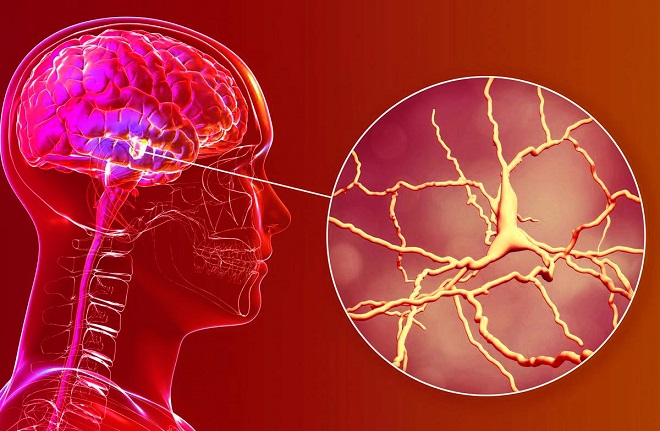Oklahoma Study Shockingly Finds That Even Just Fragments of SARS-CoV-2 Virus Can Trigger Parkinson-Like Brain Changes
Nikhil Prasad Fact checked by:Thailand Medical News Team Nov 04, 2025 3 months, 1 week, 2 days, 23 hours, 50 minutes ago
Medical News: How COVID-19 Virus Fragments May Harm Brain Proteins
Researchers from the Department of Chemistry and Biochemistry at the University of Oklahoma have found that fragments of the SARS-CoV-2 virus can play a role in triggering harmful changes in brain proteins linked to Parkinson’s disease. Using advanced computer simulations, scientists examined how two specific viral protein fragments interact with alpha-synuclein — a key protein known to clump abnormally in Parkinson’s disease and damage brain cells.
 Oklahoma Study Shockingly Finds That Even Just Fragments of SARS-CoV-2 Virus Can Trigger Parkinson-Like Brain Changes
Oklahoma Study Shockingly Finds That Even Just Fragments of SARS-CoV-2 Virus Can Trigger Parkinson-Like Brain Changes
In this
Medical News report, the research revealed that two short viral protein pieces, named FI10 (from the spike protein) and SK9 (from the envelope protein), can make alpha-synuclein molecules stick together more easily. This early clumping may form “seeds” for toxic fibrils — long strands of protein that accumulate in the brain and interfere with nerve communication, eventually leading to the movement and cognitive problems seen in Parkinson’s disease.
What The Researchers Discovered
Through detailed molecular dynamics simulations, the scientists tested how these viral fragments influenced alpha-synuclein’s early aggregation stages. Normally, single alpha-synuclein molecules float freely, but under certain conditions, they start pairing up (forming dimers) — the first step toward larger, harmful fibril structures. The study found that in the presence of SARS-CoV-2 fragments, especially SK9, the dimers became more stable and compact.
This stabilization increases the likelihood of forming rod-like fibrils, which are more toxic and resilient than other forms. The SK9 fragment, in particular, bound strongly to alpha-synuclein dimers and slowed their breakdown. This prolonged stability may allow these dimers to accumulate and develop into the harmful aggregates observed in Parkinson’s disease patients. Meanwhile, the FI10 fragment showed a similar but less pronounced effect.
How These Findings Connect to Parkinson’s and COVID-19
The findings add weight to previous studies suggesting that COVID-19 infection could be linked to neurological complications. Some patients have developed Parkinson-like symptoms after recovering from the virus, and scientists suspect that SARS-CoV-2 may trigger neuroinflammation or protein misfolding in the brain. The new study gives a possible molecular explanation for how this might occur — by showing that even tiny pieces of the virus can disturb normal brain protein behavior and promote disease-like aggregation.
The simulations also revealed that SK9 increased the exposure of water-loving (hydrophilic) parts of the protein, potentially changing how it interacts with its surroundings. This could make alpha-synuclein molecules more prone to form sticky aggregates, eventually leading to the neurotoxic structures typical in Parkinson’s disease.
Broader Implications
g>
This research underscores how COVID-19 may have long-term neurological consequences beyond respiratory illness. By revealing how specific viral fragments interact with alpha-synuclein, scientists are a step closer to understanding why some post-COVID patients experience tremors, fatigue, or cognitive decline. Such findings could guide future therapies aimed at blocking or reversing these harmful molecular interactions before they cause lasting brain damage.
The study findings were published in the peer reviewed journal: ACS Chemical Neuroscience.
https://pubs.acs.org/doi/10.1021/acschemneuro.5c00635
For the latest COVID-19 news, keep on logging to Thailand Medical News.
Read Also:
https://www.thailandmedical.news/articles/coronavirus
